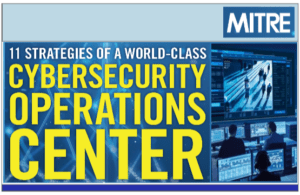Source: securityboulevard.com – Author: Deepak Gupta
In today’s interconnected digital landscape, secure and seamless access to multiple applications and systems is crucial for organizations of all sizes. And Single Sign-On (SSO) has emerged as a powerful tool to simplify authentication processes, enhance security, and improve user experience.
However, when implementing an SSO solution, organizations often face a critical decision: should they opt for a self-managed or a service-based approach? Let’s explore the intricacies of both options, providing a comprehensive comparison to help you make an informed choice.
Self-managed SSO solutions grant organizations complete control over their authentication infrastructure. They involve deploying and maintaining the SSO infrastructure on-premises or in a private cloud environment.
With self-managed SSO, organizations have direct control over their authentication processes’ customization, configuration, and security. This level of control can be appealing to organizations with specific security requirements or compliance regulations.
Service-based SSO solutions involve outsourcing the SSO infrastructure to a trusted third-party provider. These providers offer a cloud-based SSO platform, eliminating the need for organizations to invest in infrastructure setup and maintenance.
Service-based SSO solutions provide scalability and flexibility and offload the burden of managing and updating the SSO infrastructure. They are particularly advantageous for organizations seeking quick implementation, scalability, and cost-effectiveness.
Self-managed solutions allow organizations to control and customize their authentication processes according to their specific needs. This level of control allows for fine-tuning and tailoring the solution to align perfectly with the organization’s unique requirements.
On the other hand, service-based solutions may have limitations on customization, but they provide a more streamlined and standardized approach that can be quickly implemented.
With self-managed solutions, organizations need to allocate dedicated resources for infrastructure maintenance and ongoing support. This includes ensuring system updates, applying patches, and handling technical issues.
In contrast, service-based solutions offload these responsibilities to the provider. They offer regular updates, patching, and technical support as part of their service, allowing organizations to focus on their core operations without worrying about infrastructure maintenance.
Service-based solutions excel in terms of scalability and flexibility. They are designed to handle changing user demands, accommodate new applications seamlessly, and integrate with other services.
As organizations grow or introduce new software, service-based solutions can quickly scale up or down to meet evolving requirements. In contrast, self-managed solutions may require additional resources, expertise, and time to scale effectively, which can challenge organizations with rapidly changing needs.

Both self-managed and service-based solutions can offer robust security features. However, self-managed solutions provide organizations with more granular control over security measures.
This level of control is particularly advantageous for organizations with strict compliance requirements or handling sensitive data. By customizing security protocols, self-managed solutions allow organizations to align with specific industry regulations and implement tailored security measures.
Self-managed solutions typically involve higher upfront costs due to the initial investment required for infrastructure setup and ongoing maintenance. Organizations must budget for hardware, software licenses, and dedicated IT resources.
In contrast, service-based solutions operate on a subscription-based pricing model. This approach provides cost predictability, as organizations pay for their required services without significant upfront investments.
Service-based solutions can be beautiful for organizations seeking cost-effective solutions or those with budget constraints.
When deciding between self-managed and service-based SSO solutions, organizations should carefully evaluate factors such as their need for control and customization, available resources for maintenance and support, scalability requirements, security and compliance obligations, and cost considerations.
Finding the right balance based on these factors will help organizations choose the solution that best aligns with their unique needs and goals.
Choosing between self-managed and service-based SSO solutions requires carefully assessing organizational needs, resources, and long-term goals. While self-managed solutions offer control and customization, service-based solutions provide scalability, flexibility, and offload maintenance burdens.
When deciding, it is crucial to consider factors such as control, maintenance, scalability, security, and cost. Choosing between self-managed and service-based SSO solutions should align with your organization’s unique requirements and priorities.

Original Post URL: https://securityboulevard.com/2023/07/choosing-between-self-managed-and-service-based-sso-solutions-a-comprehensive-comparison/
Category & Tags: Governance, Risk & Compliance,Identity & Access,Security Bloggers Network,Authentication,Compliance,cx,single sign on – Governance, Risk & Compliance,Identity & Access,Security Bloggers Network,Authentication,Compliance,cx,single sign on




















































